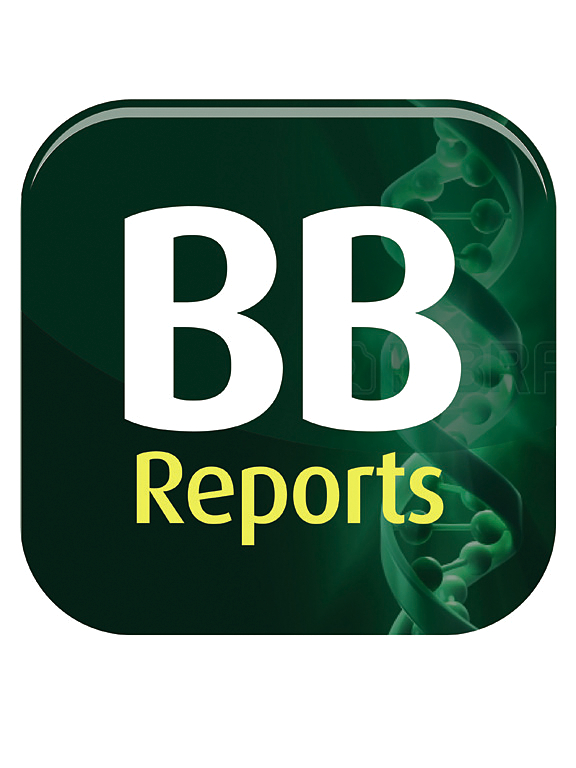通过对基于芯片的数据集进行实验室内分析来确定胃癌生物标记物
IF 2.3
Q3 BIOCHEMISTRY & MOLECULAR BIOLOGY
引用次数: 0
摘要
胃癌是包括巴基斯坦在内的全球发病率最高的癌症之一。胃癌诊断过晚导致生存率降低。本研究旨在调查胃癌早期诊断和预后的生物标志物。为此,研究人员从 GEO 数据库中检索了十个基于芯片的基因表达数据集(GSE54129、GSE79973、GSE161533、GSE103236、GSE33651、GSE19826、GSE118916、GSE112369、GSE13911 和 GSE81948),并使用 GEO2R 进行分析,以确定差异表达基因。数据集被排列成不同数据集组合的子集,以确定共同的 DEGs。利用 DAVID 工具对常见 DEGs 进行基因本体和功能通路富集分析。泛癌症分析由 UALCAN 数据库进行。常见 DEGs 的生存期分析由 Kaplan-Meier plotter 完成。在不同的数据集组合中,共发现了 71 个常见 DEGs。其中,只有5个DEGs(即ATP4B、ATP4A、CCKBR、KCNJ15和KCNJ16)在所有数据集中都被检测到。GO和通路分析表明,所发现的DEGs参与了胃酸分泌和集合管酸分泌通路。利用另外三个数据集(GSE31811、GSE26899 和 GSE26272)对这五个基因进行的进一步表达验证证实了它们在胃癌样本中的差异表达。泛癌症分析也发现了 DEGs 在各种癌症中的异常表达。生存分析表明,这 5 个 DEGs 与胃癌患者的不良生存率有关。总之,这项研究揭示了一个由 5 个基因组成的小组,它们可用作胃癌患者的诊断和预后生物标志物。本文章由计算机程序翻译,如有差异,请以英文原文为准。
Identification of gastric cancer biomarkers through in-silico analysis of microarray based datasets
Gastric cancer is among the most prevalent cancers worldwide including in Pakistan. Late diagnosis of gastric cancer leads to reduced survival. The present study aimed to investigate biomarkers for early diagnosis and prognosis of gastric cancer. For this purpose, the ten microarray-based gene expression datasets (GSE54129, GSE79973, GSE161533, GSE103236, GSE33651, GSE19826, GSE118916, GSE112369, GSE13911, and GSE81948) were retrieved from GEO database and analyzed by GEO2R to identify differentially expressed genes. Datasets were arranged in subsets of different dataset combinations to identify common DEGs. The gene ontology and functional pathway enrichment analysis of common DEGs was performed by DAVID tool. Pan-cancer analysis was conducted by UALCAN database. Survival analysis of common DEGs was done by Kaplan-Meier plotter. A total of 71 common DEGs were identified in different combinations of datasets. Among them, only 5 DEGs namely ATP4B, ATP4A, CCKBR, KCNJ15, and KCNJ16 were detected to be common in all the datasets. The GO and pathway analysis represented that the identified DEGs are involved in gastric acid secretion and collecting duct acid secretion pathways. Further expression validation of these five genes using three additional datasets (GSE31811, GSE26899, and GSE26272) confirmed their differential expression in gastric cancer samples. The pan-cancer analysis also revealed aberrant expression of DEGs in various cancers. The survival analysis showed the association of these 5 DEGs with poor survival of gastric cancer patients. To conclude, this study revealed a panel of 5 genes, which can be employed as diagnostic and prognostic biomarkers of gastric cancer patients.
求助全文
通过发布文献求助,成功后即可免费获取论文全文。
去求助
来源期刊

Biochemistry and Biophysics Reports
Biochemistry, Genetics and Molecular Biology-Biophysics
CiteScore
4.60
自引率
0.00%
发文量
191
审稿时长
59 days
期刊介绍:
Open access, online only, peer-reviewed international journal in the Life Sciences, established in 2014 Biochemistry and Biophysics Reports (BB Reports) publishes original research in all aspects of Biochemistry, Biophysics and related areas like Molecular and Cell Biology. BB Reports welcomes solid though more preliminary, descriptive and small scale results if they have the potential to stimulate and/or contribute to future research, leading to new insights or hypothesis. Primary criteria for acceptance is that the work is original, scientifically and technically sound and provides valuable knowledge to life sciences research. We strongly believe all results deserve to be published and documented for the advancement of science. BB Reports specifically appreciates receiving reports on: Negative results, Replication studies, Reanalysis of previous datasets.
 求助内容:
求助内容: 应助结果提醒方式:
应助结果提醒方式:


